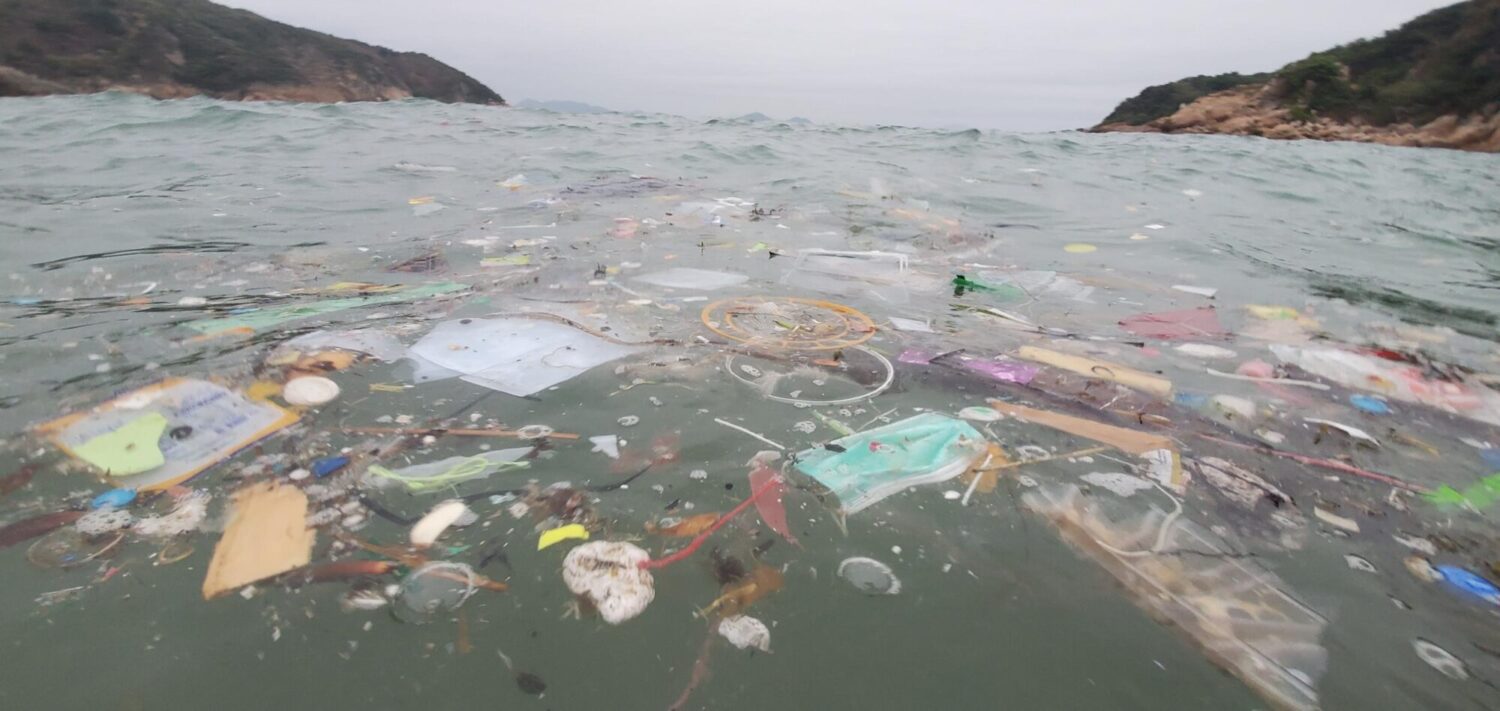
Written by Chloe Fross, Legal Intern from Lewis & Clark Law School
COVID-19 waste is turning up gloves, masks, hand sanitizer and all forms of vital personal protective equipment (PPE) in the world’s oceans. Alarm bells to the new form of ocean waste were first rung by divers for Opération Mer Propre who found PPE on a dive in the Mediterranean and then by OceansAsia who, during a survey trip to the Soko Islands, found masks washing up on the beaches. Following the dive, Laurent Lombard, a member Opération Mer Propre warned of the future possibility of “more masks than jellyfish.” And in the United States, Waterkeeper cleanups are showing members finding items such as disinfectant wipes, gloves, and masks.
Ocean trash pollution harms marine animals through entanglements, ingestion and habitat disruption. In turn, ocean trash pollution is a public health threat. A 2015 study of fish and shellfish for sale in markets found 25% of fish sampled in California contained plastics in their digestive tracks. Humans are at risk from consuming toxic laden plastic debris ingested by fish sold at market.
California’s waterways are already swimming with trash. Last year, the San Francisco Estuary Institute estimated an annual discharge of 7 trillion microplastics into San Francisco Bay alone. And now, here at home,California Coastkeeper Alliance (CCKA) has found the new source of trash on California’s beaches. According to Executive Director Sean Bothwell, “we’ve been noticing—and collecting for proper trash removal—masks, gloves and sanitizing wipes. We have also seen an increase in more ‘typical’ litter such as beverage cans, candy wrappers and plastic bags due to more Californians recreating at beaches and rivers this summer due to the closure of indoor facilities such as movie theaters, museums and bars.”
A June 2020 study estimated there is a monthly global use of 129 billion face masks and 65 billion gloves. Such a surge in necessary plastic consumption risks a dramatic increase in plastic detritus invading our waters. Meanwhile, important social distancing measures forced the closure of recycling programs across the state as well as recycling centers, the state’s single-use bag ban was, and the bottle redemption requirements were waived another 60 days on June 22, 2020. Now more than ever is a time to step up and ensure our single use PPE creates a healthier environment and not a more toxic one.
CCKA has been working to ensure the State’s $46 billion marine economy is #TrashFree2030 but California’s clogged water ecosystem cannot afford to suffer an increase in marine debris. Adopted in 2015, CCKA led the effort to make California the first state to implement a Trash Policy to stop the flow of refuse to our ocean, bays, and rivers, setting a goal of no refuse to be present in our waterways by 2030, and requiring cities to prevent refuse from entering waters by placing trash catching devices on storm drains. CCKA and California Waterkeepers continue to work with Regional Water Boards and the Ocean Protection Council to ensure implementation and monitoring of the Trash Policy program. Further, in partnership with the State Water Board, CCKA is developing a trash “hot spot” program to address sources of trash pollution resulting from California’s housing crisis.
As a state who loves our coast and ocean, making more than 150 million visits to California beaches each year, consider a reusable mask, and take care to safely dispose of your PPE, because PPE belongs in the trash bin and not in our waterways.

Associate Director Natalie Caulk provides operational leadership and manages the ongoing implementation of programs and partnerships of CCKA.



